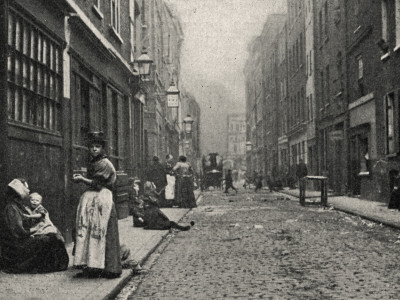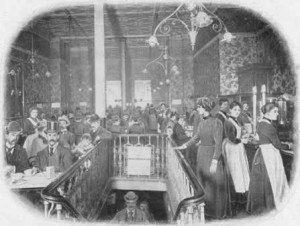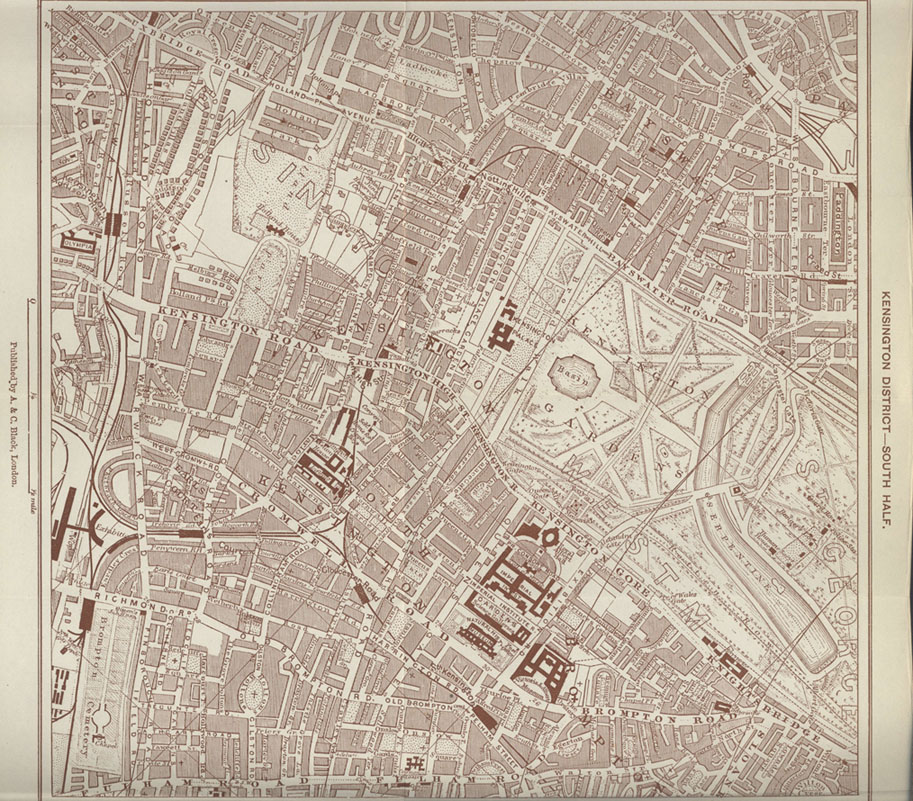The following article, written by Frederick A. McKenzie, was published in the Daily Mail on 16 July 1901

[Source]Where our Criminals are Trained.
Dorset Street, Spitalfields, has recently sprung into undesired notoriety. Here we have a place which boasts of an attempt at murder on an average once a month, of a murder in every house, and one house at least, a murder in every room. Policemen go down it as rule in pairs. Hunger walks prowling in its alleyways, and the criminals of to-morrow are being bred there to-day.
BLUE BLOOD.
The lodging-houses of Dorset Street and of the district around are the head centres of the shifting criminal population of London. Of course, the aristocrats of crime – the forger, the counterfeiter, and the like do not come here. In Dorset Street we find more largely the common thief, the pickpocket, the area meak, the man who robs with violence, and the unconvicted murderer. The police have a theory, it seems, that it is better to let these people congregate together in one mass where they can be easily be found than to scatter them abroad. And Dorset Street certainly serves the purpose of a police trap.
If this were all, something might be said in favour of allowing such a place to continue. But it is not all. No criminal centre is wholly criminal, and to represent even the lodging houses of Dorset Street as wholly inhabited by the utterly depraved would be wrong. There are many men in them who are simply “down on their luck.” There are many boys there whose sole desire is to lead a free life, and who have not yet known the policeman’s clatch on their shoulder. There are even a few women, though but a very few, who have not yet shared in the almost inevitable rain which comes on their sex in such a place.
Here comes the real and greatest harm that Dorset Street does. Respectable people, whose main offence is their poverty, are thrown in close and constant contact with the agents of crime. They become familiarized with law-breaking. They see the best points of the criminals around them. If they are in want, as they usually are, it often enough a thief who shares his spoils with them to give them bread. And there are those who are always ready to instruct these new-comers in the simple ways of making a dishonest living. Boy thieves are trained as regularly and systematically around Dorset Street to-day as they were in the days of Oliver Twist.
THE CANCER OF THE “DOSS HOUSE”
There must seem, I am well aware, an air of unreality about this to follow who read it in comfortable surburban homes or bright country houses. It seems impossible that in our new century these things should continue. But perhaps those who think it unreal will look over for their own satisfaction the indictments of any of our great criminal courts. They may notice there the number of petty thieves, and brutal assaulters, of burglars, even of murderers at every session. These men have to learn their business. You do not become a burglar without training, and even the art of the knuckle-duster requires a little practice. Where are these folks trained? Many of them are from Dorset Street.
The chief harm the common lodging-houses do is in the free association of criminals with those who have not yet learned the ways of crime. The mixed houses where men and women go together are, of course, infinitely the worse, and the authorities might well consider it worth while to secure the more rigid enforcement of elementary laws for good morality in such houses. But common lodging-houses there must be, and to close the present places without giving better accommodation in their stead would be to do more harm than good. London to-day has a sad lack of good temporary shelters for poor folks. Lord Rowton in his admirable homes has supplied a great want for some of the better class.
The County Council has made a very small endeavour, but its house, too is not for the really poor. We want in London places like the great Municipal or Burn’s Homes in Glasgow, where for 3½d. Or 4d. A night a man can secure a simple cubicle and the use of the common rooms. This experiment has been enormously successful in Glasgow. It yields fair returns on the money invested in it; it has swept away innumerable criminal dens; it is giving the poorest and the worst a chance of honestly re-starting again. But a still greater need is a good lodging-house for women. I understand that the curate of Christ Church, Spitalfields, has started in that neighbourhood a small home for respectable girls. This is admirable, but he himself would probably be the first to admit that something very much more is wanted. Those of us who know the enormous difficulties in the way of running a successful common lodging-house for women yet believe that with really good management the difficulties which have frightened so many off this thing would vanish.
FURNISHED ROOMS.
The lodging-houses are bad, but they are the best side of a bad street. They at least have certain official inspection, and a certain minimum amount of sanitation and decency is there secured. But the furnished rooms so-called are infinitely worse. Farming furnished rooms is exceedingly profitable business. You take seven or eight-roomed houses at a rent of 10s. Or 11s. A week, you place on each door a padlock, and in each room you put a minimum amount of the oldest furniture to be found in the worst second-hand dealers’ in the slums. The fittings of the average furnished room are not worth more than a few shillings. Then you let the rooms out to any comers for 10d. Or 1s. A night. No questions asked. They pay the rent, you hand them the key. If by the next night they have not their 10d. or 1s. Again ready you go round and chuck them out and let a new-comer in.
But for mere want we find here “depths below the lowest deep.” There are some to whom even the common lodging-house or the penny shelter are unobtainable luxuries. In the summer months they do not mind. A seat on the Thames Embankment is in many ways to be preferred to a bed in a big dormitory in Dorset Street. But on winter nights, when well-fed and well-clothed citizens shiver over their roaring fires, then it is that the lot of these poor souls is truly pitiable. I have seen them on such nights lying on the stones of the doorways, or crouched asleep by the half-dozen on the damp brick passage-ways of the furnished houses.
They tell me it is a poor look-out for the School Board officer who pokes his nose into unwanted quarters of Dorset Street, The children are trained in the gutter, their first lessons are in oaths and crime. They learn ill as they sip at their mother’s gin, and you can see them at six and eight years’ old gambling in the gutter-ways.
The County Council showed what it could do in Boundary Street. Surely here, under such needs, it might make a special endeavour. For every pound spent in reforming this street would mean many pounds saved on our prisons and legal machinery to-morrow.




Sounds like my old dorm.
LOL, that’s scary.